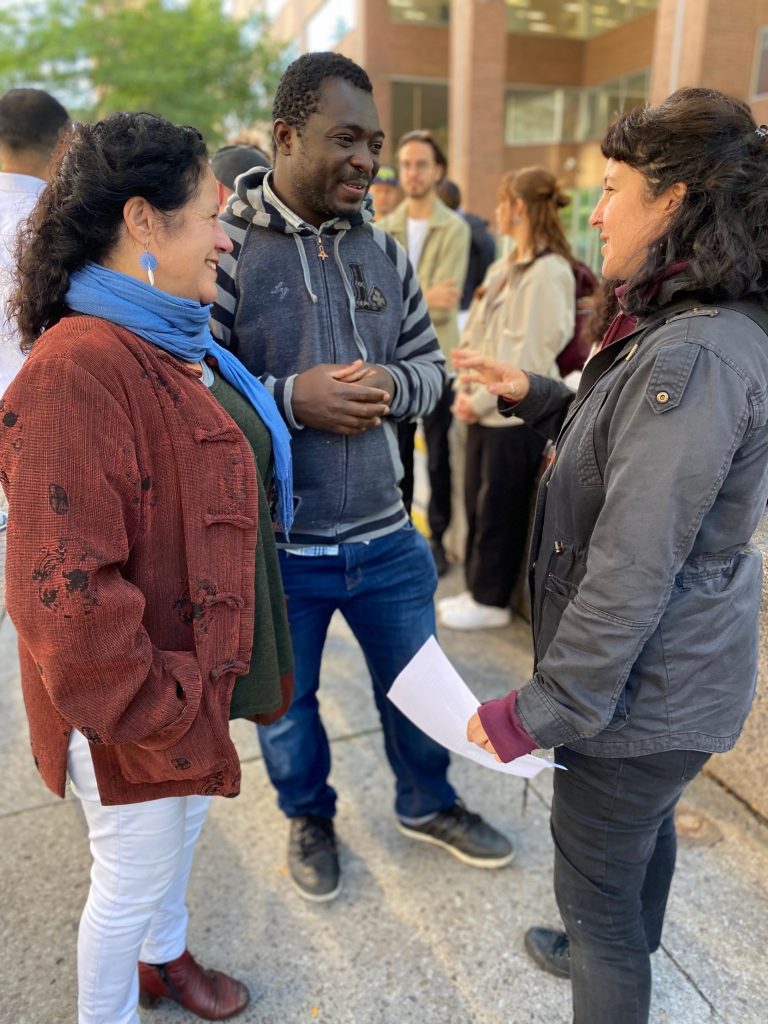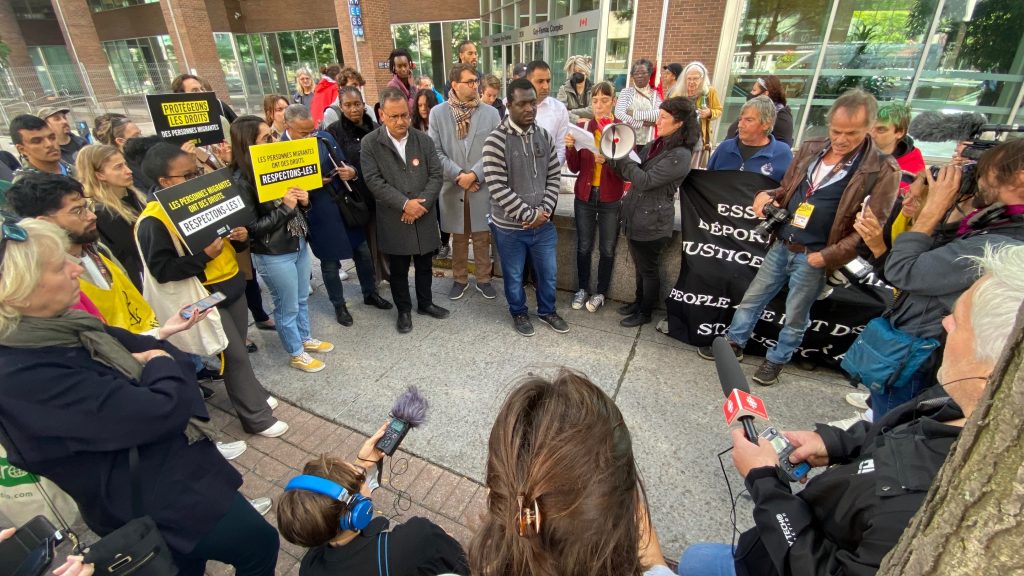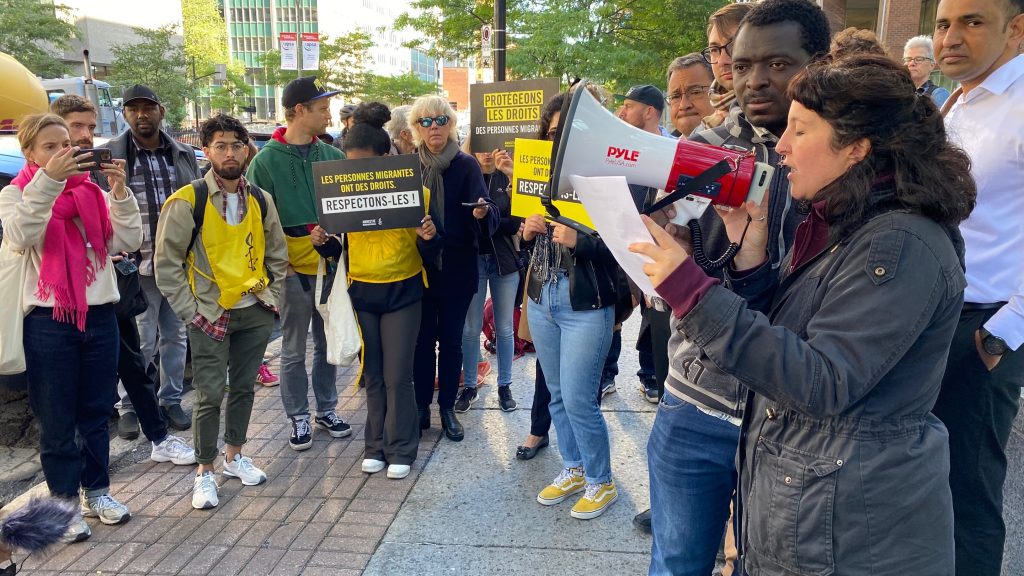Deportation imminent for Quebec migrant worker who was pandemic hero

Posted September 22, 2022 8:00 am.
Last Updated September 22, 2022 6:39 pm.
A man who worked in Quebec’s long-term care homes during the pandemic – a position widely revered as COVID-19 swept across the province two years ago – is scheduled to be deported next week.
BACKGROUND: Quebec migrant worker goes from pandemic hero to risk of deportation
Mamadou Konaté, who is from the Ivory Coast, has lived in Quebec for six years.
His lawyers have attempted to keep him in the province. They now fear, if nothing changes in the coming days, that Konaté will be deported next Friday, Sept. 30.
“Despite the strong mobilization, despite all of Mamadou’s efforts to expose the injustice he is facing, the Canadian Border Services Agency (CBSA) has decided Mamadou Konate will be deported on 30 September,” the group Support Committee for Mamadou said in a statement.
#WATCH: Montrealers come together to support Mamadou Konaté, who worked in Quebec’s long-term care homes during the pandemic and is scheduled to be deported back to the Ivory Coast next week. He has lived in Quebec for six years.
READ MORE: https://t.co/SUzOXWSHDu pic.twitter.com/jszPie9eBo
— CityNews Montreal (@CityNewsMTL) September 22, 2022
This comes after a request by Konaté’s lawyer, Guillaume Cliche-Rivard, to postpone the deportation was refused by the CBSA.
The Support Committee for Mamadou says two applications were recently submitted – an updated pre-removal risk assessment (PRRA) and a Temporary Residence Permit (TRP) – but there has been no answer.
“In the next few days, Mamadou will make an emergency application to the Federal Court, seeking a stay of deportation,” the statement continues. “If granted, this will allow him the time to receive a response on his TRP application and on his application for ministerial dispensation, submitted over a year and a half ago, which would finally allow his strong application on humanitarian grounds to be considered.”
The group held a what they called a vigil Thursday morning outside the Guy-Favreau complex on René-Lévesque.
“He fled Côte d’Ivoire and he came here to submit a refugee claim. He was deemed inadmissible, because he had been associated with a group that fights against the government in Côte d’Ivoire. He is associated with them against his choice. He was forced to be associated with them,” said Marisa Berry Mendez, campaigns manager, Amnesty International Canada Francophone.
“He’s in danger of being arrested, interrogated and potentially tortured if he goes back to Côte d’Ivoire. This is being asserted by the Amnesty International office in Côte d’Ivoire.”
“[Mamadou] doesn’t represent a a risk a security risk to Canada. He should be able to submit that refugee claim that is a universal human right to claim refugee status in a safe country. […] He has contributed so much to Quebec and Canadian society. He is a valued neighbour, friend, colleague,” added Berry Mendez.



“The more human side is, in my mind, [Mamadou] has been an essential worker in Quebec since arriving in 2016. During the pandemic he worked on the front lines of COVID-19 in CHSLDs. He caught the virus and became very sick, and he had no right to access health care during that time because of his precarious status, because he was deemed inadmissible to submit a refugee claim. So there are a lot of issues that come together here,” said Berry Mendez.
“And now he’s working as a sanitizer agent. So he cleans at Concordia University. He’s there every single week. He does. The more time that he’s been asked to do. And he’s very implicated and he’s very professional,” added Mamadou’s lawyer.
“I think it’s unfair. I think we’re a lot more useful for us to have him here in Canada, than to have them back in Côte d’Ivoire. A man who keeps on working, even though he having removal date next week. He’s still in job. He’s still doing the best he can. He’ll never stop doing so. So I think we need to recognize those sacrifices and I think we need to thank him. And I think we need to give him status quick so that he can continue his good work and have some some piece of his mind and some freedom for his future.”








